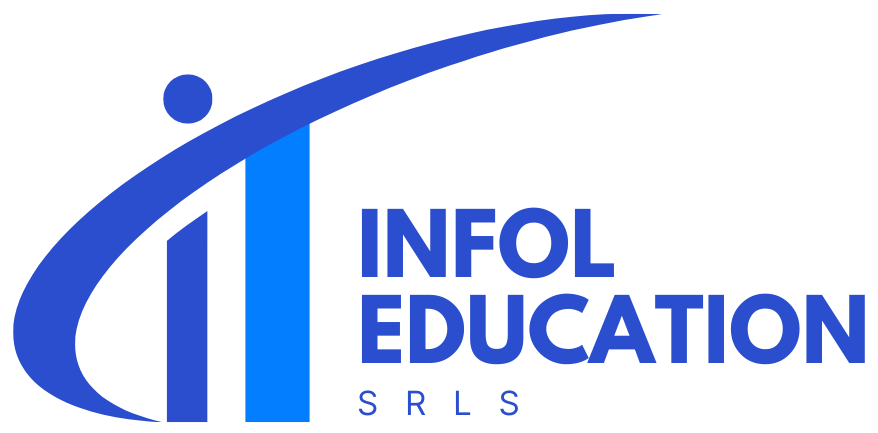In the evolving landscape of education, it is essential for teachers to stay informed and adaptable to the diverse needs of their students. The Erasmus training course “Gender and Education: Challenges and Opportunities for an Inclusive School” is meticulously designed to address one of the critical aspects of modern education—gender inclusivity. This 20-hour program, spread over five intensive days, provides a holistic approach to understanding and implementing gender-inclusive practices in schools.
Educators will delve into the nuances of gender as a social construct, exploring its implications on students’ academic and social experiences. The course will help teachers recognize the impact of gender stereotypes and biases, which often go unnoticed but significantly influence classroom dynamics and student outcomes. Through this program, teachers will learn to identify these biases within their teaching methods, materials, and interactions with students.
One of the primary objectives of this course is to empower teachers to create an inclusive classroom environment that respects and values gender diversity. Participants will engage in interactive workshops, case studies, and collaborative projects designed to foster a deeper understanding of gender issues. They will learn practical strategies to make their classrooms more welcoming and supportive for all students, regardless of their gender identity or expression.
The course also emphasizes the importance of supporting gender-diverse students. Educators will gain insights into the challenges these students face and learn how to provide the necessary support to ensure their well-being and academic success. This involves understanding the broader societal and familial contexts that influence students’ experiences and finding ways to collaborate effectively with parents and the community.
Furthermore, this training is not just about acquiring knowledge but also about implementing it. Teachers will develop personal action plans tailored to their specific teaching environments, ensuring that they leave the course with concrete steps they can take to promote gender inclusivity in their schools. The course also provides a platform for teachers to share their experiences and strategies, fostering a community of practice that extends beyond the duration of the training.
In conclusion, the “Gender and Education: Challenges and Opportunities for an Inclusive School” course is an invaluable professional development opportunity. It equips educators with the essential tools and knowledge to address gender issues in education, promoting a more inclusive and equitable learning environment for all students. By participating in this Erasmus training course, teachers will not only enhance their own professional skills but also contribute to the broader goal of creating a more inclusive society.
- Introduction:
- Key concepts: sex, gender, gender identity, gender expression, sexual orientation.
- Gender stereotypes: how to recognize and overcome them.
- The role of the school in the construction of gender identity.
- Activities:
- Group discussion: personal experiences and reflections on the topic of gender.
- Analysis of teaching materials: identifying stereotypes and biases.
Day 2:
- Gender and language:
- Language as a tool of inclusion or exclusion.
- Strategies for inclusive language that respects diversity.
- Analysis of texts and speeches: identifying stereotypes and discrimination.
- Activities:
- Practical exercises: rewriting texts in an inclusive way.
- Role-playing: simulations of inclusive communication situations.
Day 3:
- Gender and teaching:
- Teaching approaches to promote gender equality.
- Inclusive teaching materials: how to choose and use them.
- Inclusive assessment: avoiding gender-based discrimination.
- Activities:
- Designing inclusive teaching activities: group work.
- Case study analysis: how to address situations of discrimination in the classroom.
Day 4:
- Gender and bullying:
- Homophobic and transphobic bullying: how to recognize and prevent it.
- Intervention and support strategies for victims.
- Creating an inclusive and respectful school climate that embraces diversity.
- Activities:
- Viewing films and documentaries on the topic of homophobic and transphobic bullying.
- Developing an inclusive code of conduct for the school.
Day 5:
- Gender and sexual orientation:
- Addressing the topic of sexual orientation in the classroom.
- Responding to students’ questions in an inclusive and respectful way.
- Creating a safe and welcoming environment for all students.
Learning outcomes
Overall Objective: To provide teachers with the theoretical and practical tools to address gender issues in education, promoting a culture of inclusion, respect, and equal opportunities for all students. By the end of this course, participants will:
- Knowledge:
- Gain a deep understanding of key gender concepts and terminology, including sex, gender, gender identity, gender expression, and sexual orientation.
- Recognize and critically analyze gender stereotypes and biases prevalent in society and education.
- Understand the impact of gender on learning, development, and social interactions in the school context.
- Be familiar with relevant laws, policies, and educational frameworks related to gender equality and inclusion.
- Skills:
- Develop strategies for using inclusive and respectful language in the classroom and in educational materials.
- Design and implement inclusive teaching practices that promote gender equality and challenge stereotypes.
- Identify and address gender-based discrimination and bullying in the school environment.
- Create a safe and supportive learning environment for students of all genders and sexual orientations.
- Competencies:
- Reflect critically on their own biases and assumptions about gender.
- Communicate effectively with students, colleagues, and parents about gender issues.
- Advocate for gender equality and inclusion in their schools and communities.
- Promote a positive school climate that values diversity and respects the rights of all students.
Upcoming sessions
Location: Rome
- September 2024: Week 4 (September 23 – 27)
- October 2024: Week 4 (October 21 – 25)
- November 2024: Week 5 (November 25 – 29)
- March 2025: Week 1 (March 3 – 7)
- April 2025: Week 2 (April 7 – 11)
- May 2025: Week 1 (May 5 – 9)
- June 2025: Week 2 (June 9 – 13)
- July 2025: Week 3 (July 14 – 18)
- September 2025: Week 3 (September 15 – 19)
- November 2025: Week 3 (November 17 – 21)





